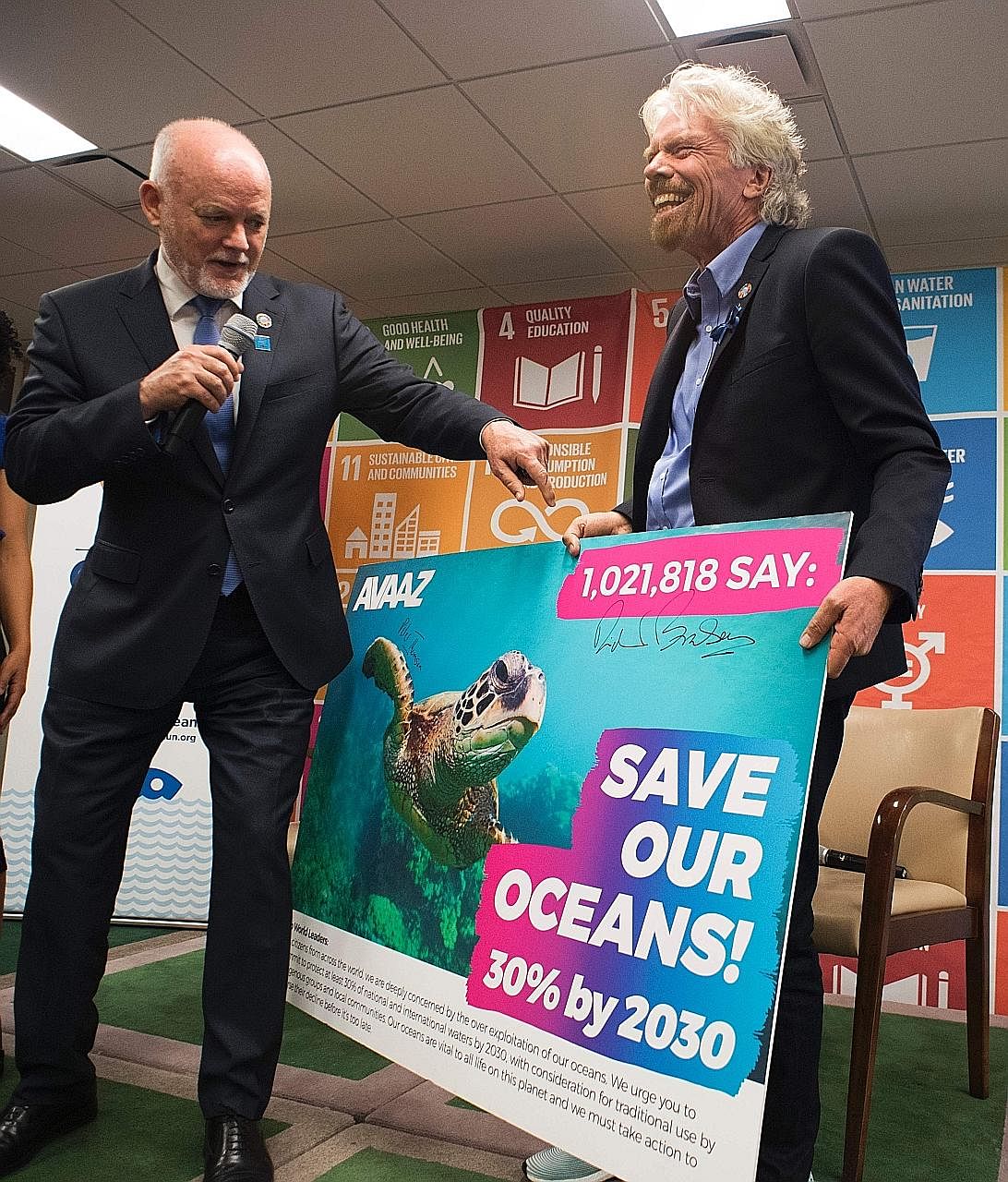UNITED NATIONS • British entrepreneur Richard Branson has handed over a petition with more than one million signatures to the United Nations, urging governments to protect at least 30 per cent of the world's oceans by 2030.
Speaking to reporters after the first Ocean Conference convened by the UN, Mr Branson criticised United States President Donald Trump's withdrawal from the Paris climate accord, saying it did not make sense.
"I think this is where the American President Donald Trump was so naive. Clean energy can be massively cheaper than dirty energy and everybody can benefit from it," he said. "If we can manage our oceans properly and create marine reserves... within these reserves, fish can replenish."
Noting a goal to make the world carbon neutral "for our grandchildren" by 2050, Mr Branson also drew attention to the erosion of Australia's Great Barrier Reef.
"The Great Barrier Reef is disappearing," he said. "It is related to the sea heating up and to lose one of the biggest wonders of the world is to cry for."
Coastal nations have committed to protecting 10 per cent of their waters by 2020, but thus far, only 3.5 per cent of the ocean has been set aside for protection and 1.6 per cent is strongly protected from exploitation.
A study published this week supported Mr Branson's call. An international research team concluded that highly protected marine reserves can help mitigate the effects of climate change.

"Marine reserves cannot halt or completely offset the growing impacts of climate change," said Dr Jane Lubchenco, a professor from the College of Science at Oregon State University and co-author of a study published this week in Proceedings of the National Academy of Sciences.
"But they can make marine ecosystems more resilient to changes and, in some cases, help slow down the rate of climate change."
Some researchers have argued that as much as 30 per cent of the ocean should be set aside as reserves to safeguard marine ecosystems in the long term.
"Protecting a portion of our oceans and coastal wetlands will help sequester carbon, limit the consequences of poor management, protect habitats and biodiversity that are key to healthy oceans of the future, and buffer coastal populations from extreme events," Dr Lubchenco was quoted as saying in a statement. "Marine reserves are climate reserves."
The study's authors say marine reserves can help protect from five impacts of climate change: ocean acidification, rising sea levels, an increase in the severity of storms, shifts in the distribution of species, and decreased ocean productivity and availability of oxygen.
The benefits were greatest in large, long-established and well- managed reserves.
AGENCE FRANCE-PRESSE, XINHUA
